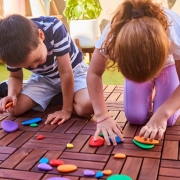Making Maths Fun: Play-Based Learning with Educational Toys
Play is the most effective way for young children to learn, especially when it comes to early years maths. Hands-on learning with educational toys not only builds confidence but also fosters creativity and problem-solving skills. At Edx Education, we advocate for play-based learning to help children develop essential maths concepts in an engaging and meaningful way.
One of the best tools to support early maths learning is the Hundred Pocket Chart. This versatile maths resource is perfect for teaching number recognition, place value, and counting, all through interactive play. When combined with maths manipulatives like Linking Cubes, Maths Cubes, Rainbow Pebbles, and sensory play materials, children can explore numbers in a way that feels natural and fun.
Why Play-Based Learning is Essential for Early Maths
Young children learn best when they are actively engaged in play. Traditional rote learning methods can feel repetitive, but play-based learning transforms maths into an exciting adventure. By using educational toys and interactive resources, parents and caregivers can make learning numbers, patterns, and problem-solving enjoyable.
Exploring Place Value with the Hundred Pocket Chart
A solid understanding of place value is key to mastering basic arithmetic. The Hundred Pocket Chart makes this concept easy to grasp with hands-on activities:
- Number Recognition & Counting: Fill the chart with numbers 1-100 and encourage children to identify patterns. Ask, “What do you notice about the numbers in each row?”
- Skip Counting with Linking Cubes: Use different coloured Linking Cubes to highlight multiples of 2, 5, or 10, helping children recognize early multiplication patterns.
- Tens & Ones Sorting Game: Write numbers on small cards and have children separate them into tens and ones to reinforce their understanding of place value.
These engaging activities help children visualise number relationships before progressing to abstract problem-solving.
Hands-On Learning with Maths Cubes & Rainbow Pebbles
Children develop a deeper understanding of maths when they can touch, move, and manipulate objects. Maths Cubes and Rainbow Pebbles are fantastic educational toys that encourage creative learning while building essential numeracy skills.
- Maths Cubes for Addition & Subtraction: Let children build number towers to explore addition and subtraction in a tactile way. This hands-on approach makes learning number operations much easier to understand.
- Rainbow Pebbles for Patterns & Sorting: Sorting and arranging pebbles by colour, shape, and size strengthens early problem-solving and spatial awareness skills.
Encouraging Creativity Through Play with a Hundred Pocket Chart
One of the great benefits of play-based learning is that it allows children to develop their own problem-solving strategies. The Hundred Pocket Chart is not just for numbers – it’s also a fantastic tool for sparking imaginative thinking.
Here are some fun ways to encourage creativity with this educational toy:
- Mystery Number Challenge: Hide a number and give clues to help children guess it.
- Number Bonds Matching Game: Fill the chart with number pairs that add up to 10 or 20 and let children match them.
- Storytelling with Numbers: Have children use numbers from the pocket chart, Maths Cubes, and Rainbow Pebbles to create their own imaginative maths stories.
By making maths play-based, children are more engaged, leading to better retention and understanding.
Sensory Play & Early Maths Learning
Sensory play is essential in the early years as it helps children develop their fine motor skills while learning maths. Incorporating textured materials like sand, water, or playdough alongside the Hundred Pocket Chart creates a multi-sensory learning experience.
Some simple sensory maths activities include:
- Tracing numbers in sand to develop early writing and number formation skills.
- Filling pockets with small objects like beads or buttons to help with counting and grouping.
- Water play with measuring cups to introduce children to basic measurement and volume concepts.
By making maths an interactive experience, children develop confidence in their abilities and a love for learning through play.
Play, Learn & Create with Edx Education
At Edx Education, we are passionate about learning through play. Our educational toys, downloadable maths resources, and our podcast Play, Learn & Create with Edx Education support parents and caregivers in making learning at home fun and engaging.
By combining the Hundred Pocket Chart with Maths Cubes, Linking Cubes, Rainbow Pebbles, and sensory materials, you can create endless opportunities for play-based learning. When children enjoy maths through hands-on activities, they build confidence, problem-solving skills, and a lifelong love of learning.
Would you like to explore more ideas on how to teach maths through play? Check out our downloadable activities and podcast episodes to get started today!
By Heather Welch, Edx Education UK

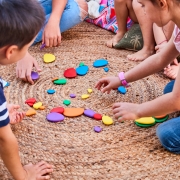
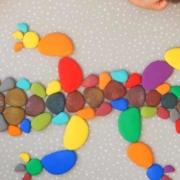 Edx Education
Edx Education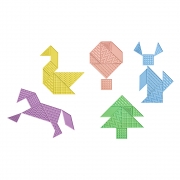 Edx Education
Edx Education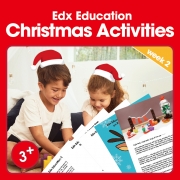 Edx Education
Edx Education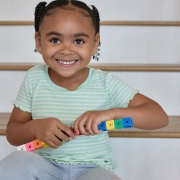
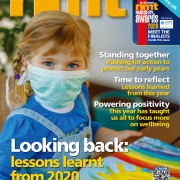 Edx Education
Edx Education